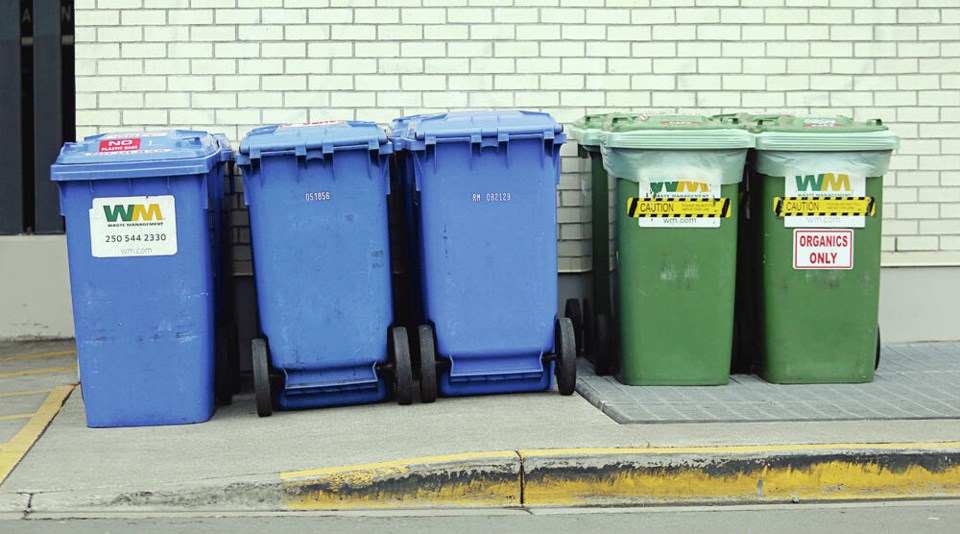Victoria council unanimously endorsed a plan Thursday that could see an additional 5,700 tonnes of waste material each year diverted from Hartland Landfill — much of it through a solid-waste program for multi-family buildings that includes collecting organics and recycling.
The Zero Waste Victoria program was originally adopted by council in the winter of 2020 to cut the city’s waste disposal in half by 2040 through waste-reduction, recycling and re-use strategies.
Of about 180,000 tonnes of municipal solid waste dumped at Hartland Landfill each year, about 45,000 tonnes comes from residents and businesses in Victoria.
The next phase of the program, outlined by city staff Thursday, will involve 16 initiatives, including developing a new solid-waste-collection service for multi-family buildings — a measure that could account for 4,100 tonnes of the anticipated 5,735 tonnes of waste the city hopes to divert from the landfill.
The short-term plan, which will run until 2027, would see new collection services for organics and recycling from multi-family properties and small businesses.
It would include developing waste-collection space requirements for new buildings, and improving both re-use options and recycling access for bulky items and materials not currently included in curbside collection services.
City staff are still working on pegging the cost of providing waste collection for the city’s multi-family buildings, but it’s expected to be about the same amount strata corporations and building owners are currently paying to have waste collected by private firms. The city is expected to increase the number of zero-waste stations — there are 38 around the city — and incorporate more into public spaces.
To reduce waste generated by events held on its properties, the city plans to introduce guidelines and waste-management requirements. The city also hopes to accelerate the transition to reusable alternatives for single-use items like takeout containers in collaboration with the hospitality industry.
On the construction front, city staff intend to report back with options to expand salvaging efforts, including how to better support home relocation rather than demolition and how to extend the city’s salvage regulations to include commercial and institutional buildings.
The city will move ahead with the next phase of its construction material bylaw that rewards those who salvage wood rather than scrapping it when demolishing a house for redevelopment.
A city staff report suggests as much as 37 per cent of Victoria’s landfilled material is generated by the construction sector.
Thursday’s endorsement of the Zero Waste Victoria plan came with a motion to have Mayor Marianne Alto write to the provincial environment minister to push for an expedited review of the city’s proposed single-use item-reduction bylaw and have it implemented province-wide.
“I strongly support the updates to the action plan — they’re all sensible,” said Coun. Jeremy Caradonna. “Obviously there’s a lot more steps to get to some of the places we want to go.”
Coun. Chris Coleman, a former chair of the CRD’s solid waste diversion committee, said the program is a step in the right direction as residents need to be educated about what happens to solid waste. “Because this is often an invisible issue, we tend to do very little and then hope people just take it away and we don’t have to deal with it anymore,” he said.
Alto, the lone member of council who was part of implementing the strategy in 2020, said she’s pleased to see the progress so far. “It’s amazing what’s happened in just a few years and so it gives me a lot of comfort for what can happen in the next few years.”



